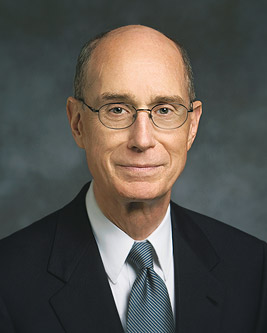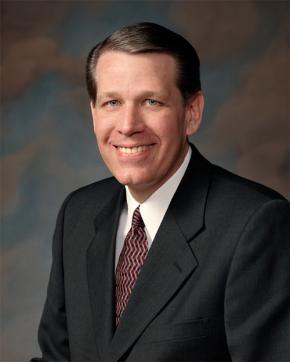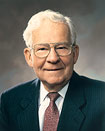Procrastination
SEARCH BY TITLE
 Do Not Delay
Do Not Delay
The temptation to delay repentance comes not only at the end of the world as suggested by those scriptures. That temptation seems to have been nearly constant since the beginning of time and goes on throughout our lives. In youth we may have thought: “There will be time enough to worry about spiritual things just before my mission or before marriage. Spiritual things are for older people.” Then, in the early years of marriage, the pressures of life, of jobs, of bills, of finding a moment for rest and recreation seem to crowd us so closely that delay in meeting obligations to God and family again seems reasonable. It is easy to think, “Perhaps there will be more time for that in the middle years.” But the compression of time does not ease in the years that follow. There is so much to do, and time seems to shrink. The 55th birthday and the 65th and the 75th don’t seem to be a decade apart. With aging comes physical and emotional challenge. We cannot seem to get as much done in an hour as we did in youth. And it is harder to be patient with others, and they seem more demanding. It is tempting then to excuse ourselves yet again from rising to the standards required by our early covenants, now so long neglected. Not all of us fall into that trap of inaction. But enough people do that we each have at least one person we love and often more—a child, a parent, a friend—someone for whom we feel responsibility, for whom we ache with concern. They have been taught the gospel. They have made covenants. And yet they go on in disobedience or neglect, despite the emptiness we know that brings them. The choice to repent or to remain a prisoner of sin is their own. Yet knowing something of how the trap of inaction and resistance was built in their minds and hearts may help us hear more easily the answer to our fervent prayer.
 Do It Now
Do It Now
Many of us place ourselves in circumstances far more consequential than embarrassment because of our procrastination to become fully converted to the gospel of Jesus Christ. We know what is right, but we delay full spiritual involvement because of laziness, fear, rationalization, or lack of faith. We convince ourselves that “someday I’m going to do it.” However, for many “someday” never comes, and even for others who eventually do make a change, there is an irretrievable loss of progress and surely regression. As a partial self-appraisal of our spiritual-procrastination standing, what is our attitude when we attend the meetings of the Church? Is it to learn “by study and also by faith” (D&C 88:118), which seamlessly translates what we learn into what we do? Or do we have an “I’ve heard it all before” mentality that immediately blocks the Spirit’s access to our minds and our hearts and enables procrastination to become a major part of our character? Of a prominent early investigator of the restored Church, who covenanted that he would obey any command that the Lord would give him, it was said, “And he received the word with gladness, but straightway Satan tempted him; … and the cares of the world caused him to reject the word” (D&C 40:2). Contrast that with the Lord’s clear statement: “He that receiveth my law and doeth it, the same is my disciple”.
 Straightway
Straightway
A few weeks ago I was visiting in a faraway country with a discouraged missionary. When I asked, “How long has it been since you wrote a letter to your mother?” he said, “Oh, about three or four weeks, I guess.” When I suggested he write her a letter straightway, he responded with, “What does straightway mean?” Straightway is a power word. Straightway is an action word. It means immediately, without delay or hesitation. It means at once. Also, it is associated with having no curve or turn—a straight course, track, or path. Procrastination would be the very opposite of straightway. To procrastinate is to put off intentionally and habitually something that should be done. Procrastination is unproductive delay. Someone has wisely said, “Procrastination is a silly thing, it only makes me sorrow; but I can change at any time—I think I will tomorrow!” “Jesus, walking by the sea of Galilee, saw two brethren, Simon called Peter, and Andrew his brother, casting a net into the sea: for they were fishers. “And he saith unto them, Follow me, and I will make you fishers of men. “And they straightway left their nets, and followed him. “And going on from thence, he saw other two brethren, James the son of Zebedee, and John his brother, in a ship with Zebedee their father, mending their nets; and he called them. “And they immediately left the ship and their father, and followed him.” My remarks today are going to be centered around this key word, straightway. “And they straightway left their nets, and followed him. How descriptive, how powerful, how rewarding when properly applied in human conduct.
 This Day
This Day
As the risen Savior, He is this day and forever the Light of the World. It is He who invites us to come unto Him and serve Him, without delay. His encouragement to you and to me is this: “I love them that love me; and those that seek me early shall find me.” That is as true of a day as it is of a life. A morning prayer and an early search in the scriptures to know what we should do for the Lord can set the course of a day. We can know which task, of all those we might choose, matters most to God and therefore to us. I have learned such a prayer is always answered if we ask and ponder with childlike submission, ready to act without delay to perform even the most humble service. On many days, doing what matters most will not be easy. It is not supposed to be. God’s purpose in creation was to let us prove ourselves. The plan was explained to us in the spirit world before we were born. We were valiant enough there to qualify for the opportunity to choose against temptation here to prepare for eternal life, the greatest of all the gifts of God. We rejoiced to know the test would be one of faithful obedience even when it would not be easy: “And we will prove them herewith, to see if they will do all things whatsoever the Lord their God shall command them.” Hard as we knew the test would be, we felt joy because we had confidence that we could pass it. Our confidence came from knowing that Jesus Christ would come into the world as our Savior. He would overcome death. He would make it possible for us to be cleansed of our sins by qualifying for the effects of His Atonement.
